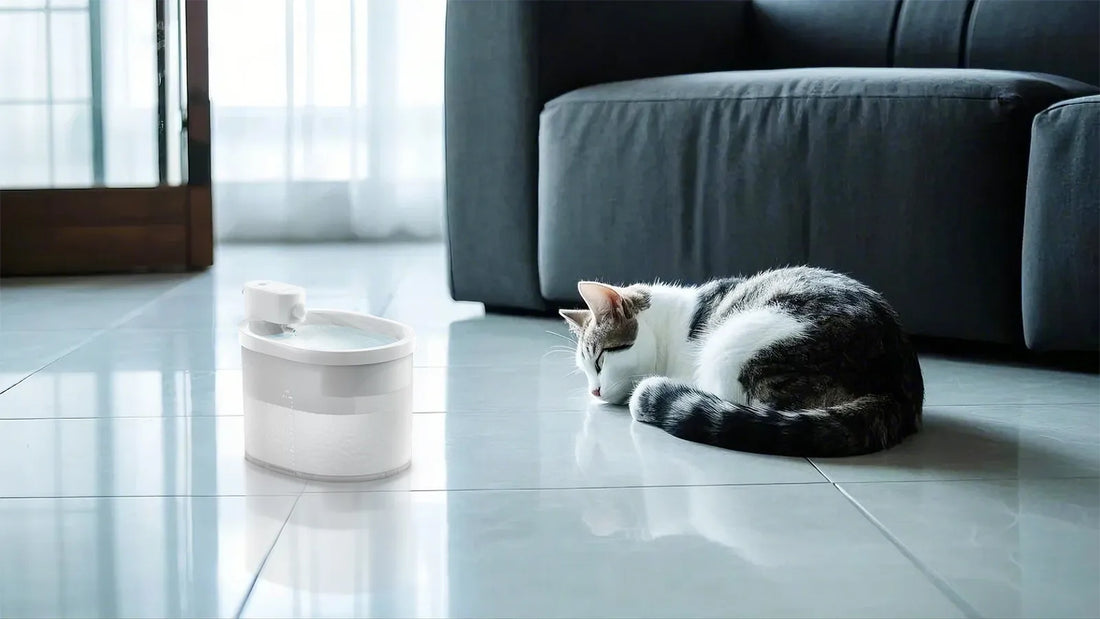Have you noticed your dog avoiding their water bowl lately? It’s a common concern for pet owners, and understanding the reasons behind this behavior is crucial for your furry friend’s well-being. Dogs, like humans, need adequate hydration to stay healthy, and a sudden change in their drinking habits can be a sign of an underlying issue. Let’s dive into the possible causes and solutions to address this concern.
Common Reasons Why Your Dog Isn’t Drinking Water
There are several reasons why your dog might not be drinking water. Some are minor and easily resolved, while others may require veterinary attention. Here are the most common causes:
1. Change in Environment or Routine
Dogs are creatures of habit, and any disruption to their routine or environment can affect their behavior. Moving to a new home, traveling, or even rearranging furniture can make your dog feel uneasy, leading to a temporary loss of appetite or thirst.
2. Stress or Anxiety
Stressful situations, such as loud noises, separation anxiety, or the presence of unfamiliar people or animals, can cause your dog to stop drinking water. Identifying and addressing the source of stress can help restore their normal habits.
3. Illness or Pain
Underlying health issues, such as infections, dental problems, or gastrointestinal disorders, can make drinking water uncomfortable for your dog. If you suspect illness, consult your veterinarian for a proper diagnosis and treatment plan.
4. Dirty or Unappealing Water
Dogs are sensitive to the taste and smell of their water. If the water bowl is dirty or the water has been sitting out for too long, your dog may refuse to drink it. Ensure their water is fresh and the bowl is clean.
5. Aging or Reduced Activity
Older dogs or those with reduced activity levels may naturally drink less water. However, it’s essential to monitor their hydration to prevent dehydration, especially in senior pets.
How to Encourage Your Dog to Drink Water
If your dog isn’t drinking enough water, there are several strategies you can try to encourage them to stay hydrated:
1. Provide Fresh Water Regularly
Make sure your dog always has access to clean, fresh water. Replace the water in their bowl at least once a day and clean the bowl regularly to remove any residue or bacteria.
2. Use a Different Water Bowl
Some dogs are picky about the type of bowl they drink from. Experiment with different materials, such as stainless steel, ceramic, or plastic, to see which one your dog prefers.
3. Add Flavor to the Water
Adding a small amount of low-sodium broth or a splash of water from canned dog food can make the water more appealing to your dog. Be sure to use pet-safe options and avoid adding anything that could be harmful.
4. Offer Ice Cubes or Wet Food
Some dogs enjoy chewing on ice cubes, which can help increase their water intake. Alternatively, feeding wet dog food, which has a higher moisture content, can also contribute to their hydration.
5. Monitor Their Activity and Environment
Ensure your dog is in a comfortable and stress-free environment. Regular exercise can also stimulate their thirst, so encourage playtime and walks to keep them active.
When to Seek Veterinary Help
While many cases of reduced water intake can be resolved at home, there are situations where professional help is necessary. Contact your veterinarian if:
- Your dog hasn’t drunk water for more than 24 hours.
- They show signs of dehydration, such as lethargy, dry gums, or sunken eyes.
- They exhibit other symptoms, like vomiting, diarrhea, or loss of appetite.
- You suspect an underlying health issue.
Early intervention can prevent complications and ensure your dog receives the care they need.
Preventing Dehydration in Dogs
Dehydration can be dangerous for dogs, so it’s essential to take preventive measures. Here are some tips to keep your dog hydrated:
1. Monitor Their Water Intake
Keep track of how much water your dog drinks daily. This will help you identify any changes in their habits and address them promptly.
2. Provide Multiple Water Sources
Place water bowls in different areas of your home, especially if you have a large house or multiple floors. This ensures your dog always has access to water.
3. Hydrate During Hot Weather or Exercise
Dogs lose more water through panting during hot weather or physical activity. Offer water frequently during these times to prevent dehydration.
4. Use a Pet Water Fountain
Some dogs are attracted to running water. A pet water fountain can encourage them to drink more and keep the water fresh and oxygenated.
Your dog’s hydration is a vital aspect of their health, and addressing their reluctance to drink water can make a significant difference in their quality of life. By understanding the causes and implementing these solutions, you can ensure your furry companion stays happy and hydrated. If you’re ever in doubt, don’t hesitate to consult your veterinarian for guidance.













